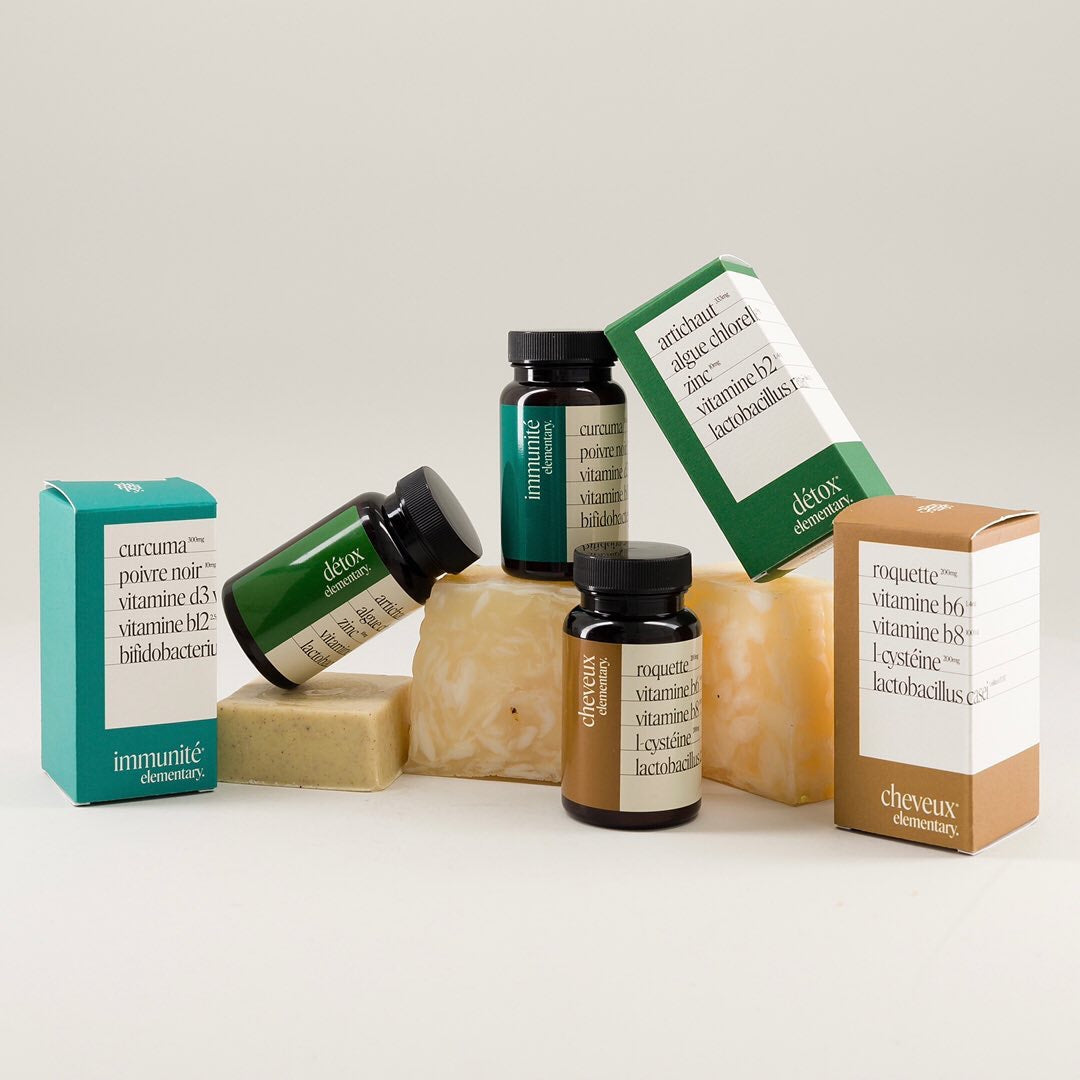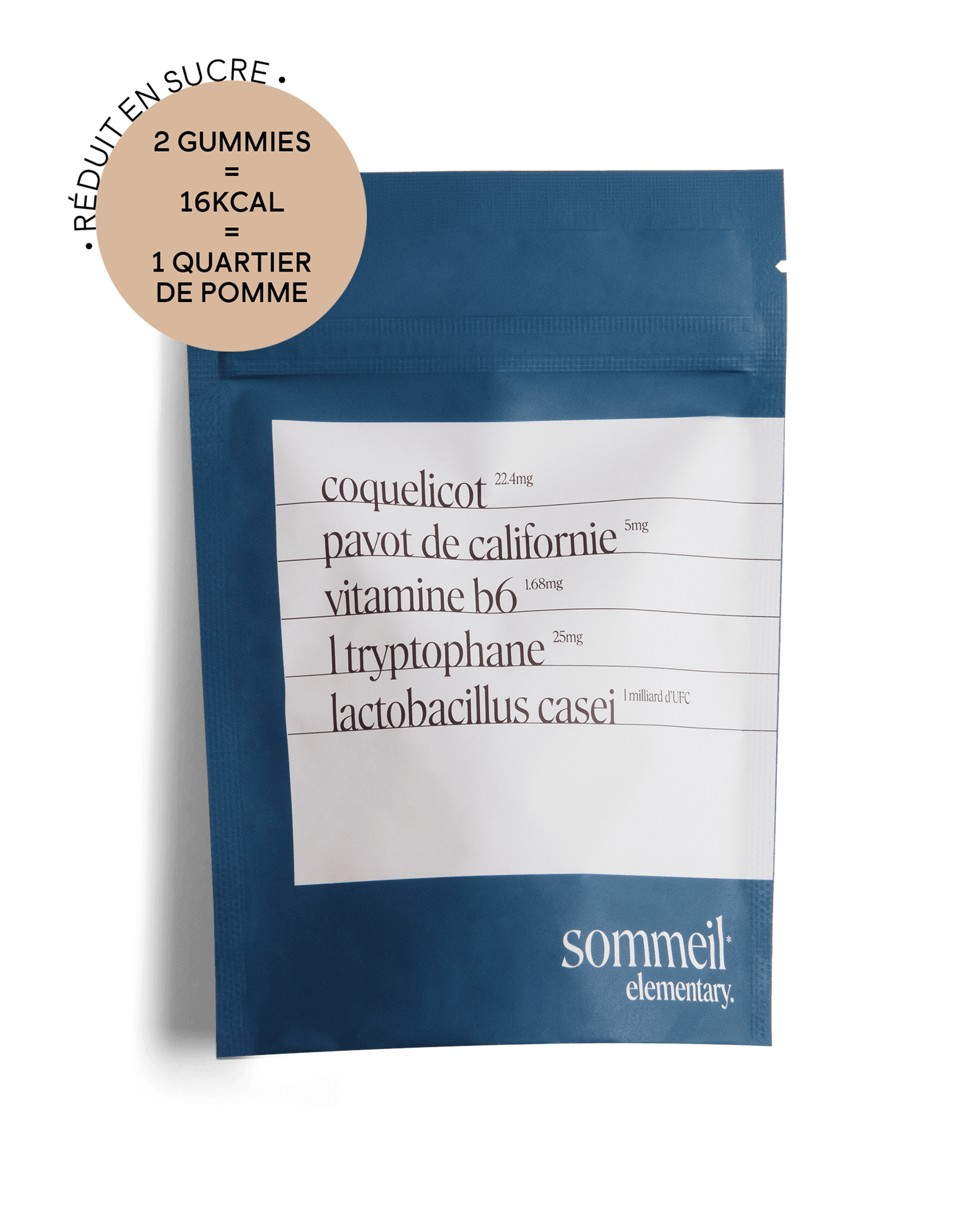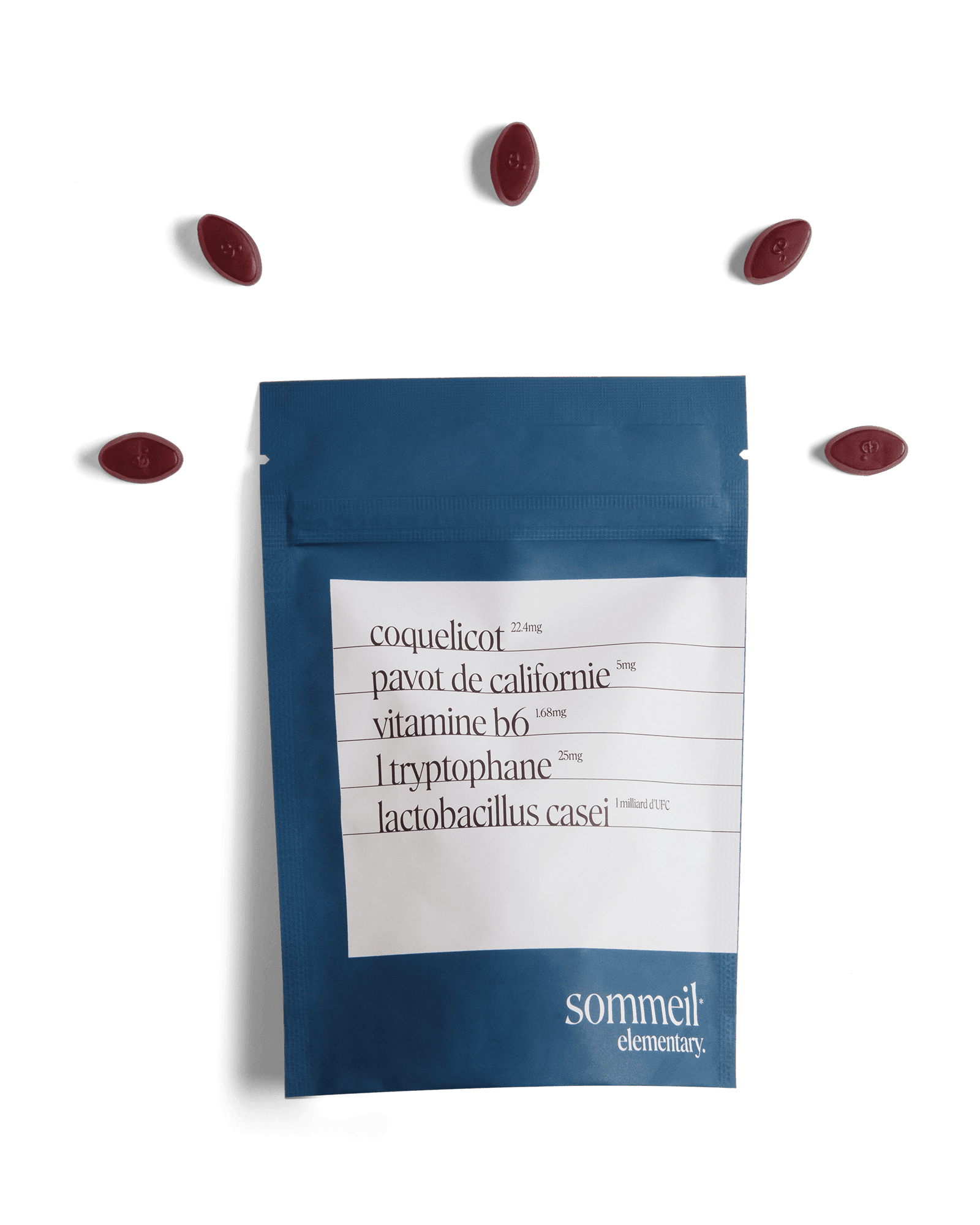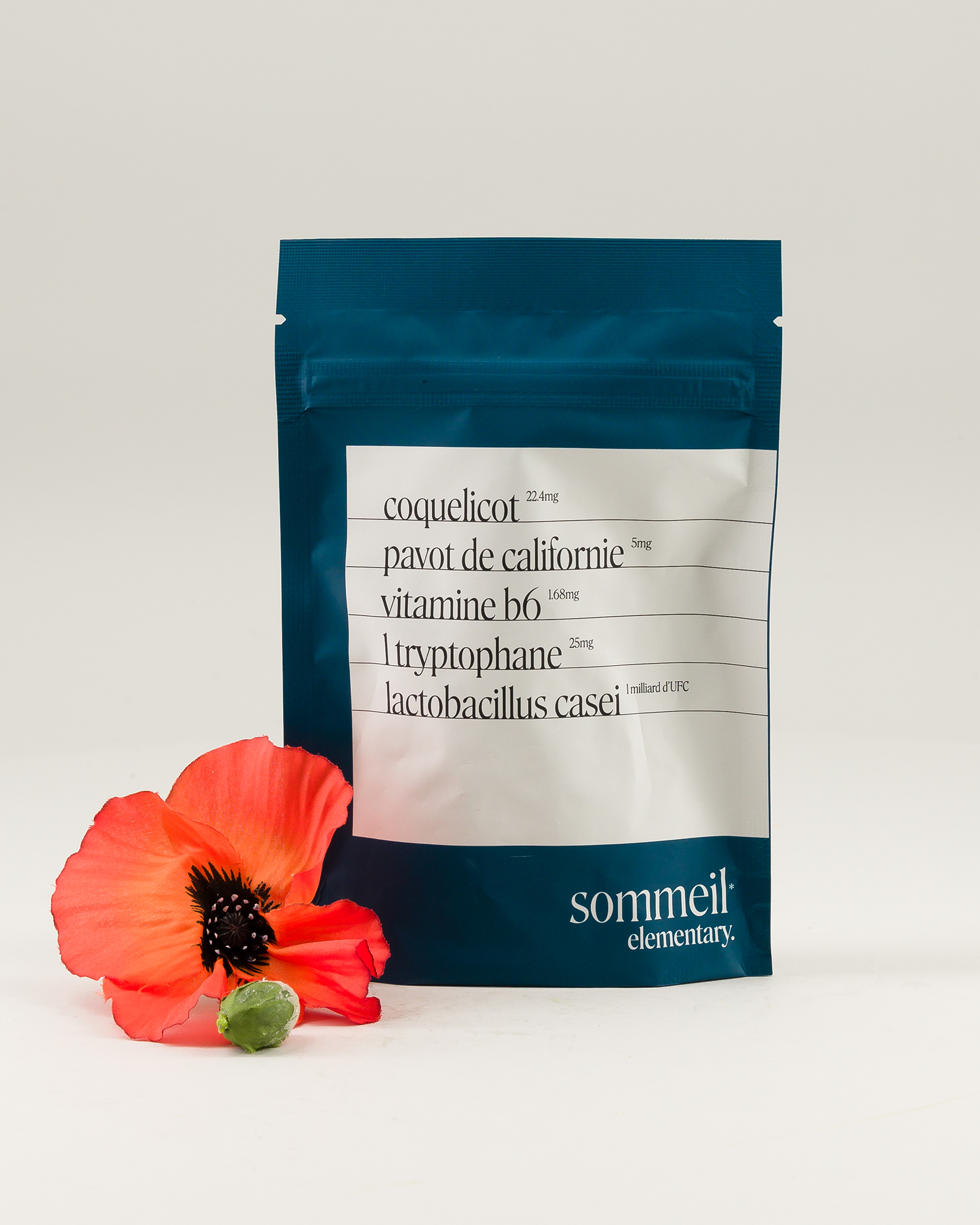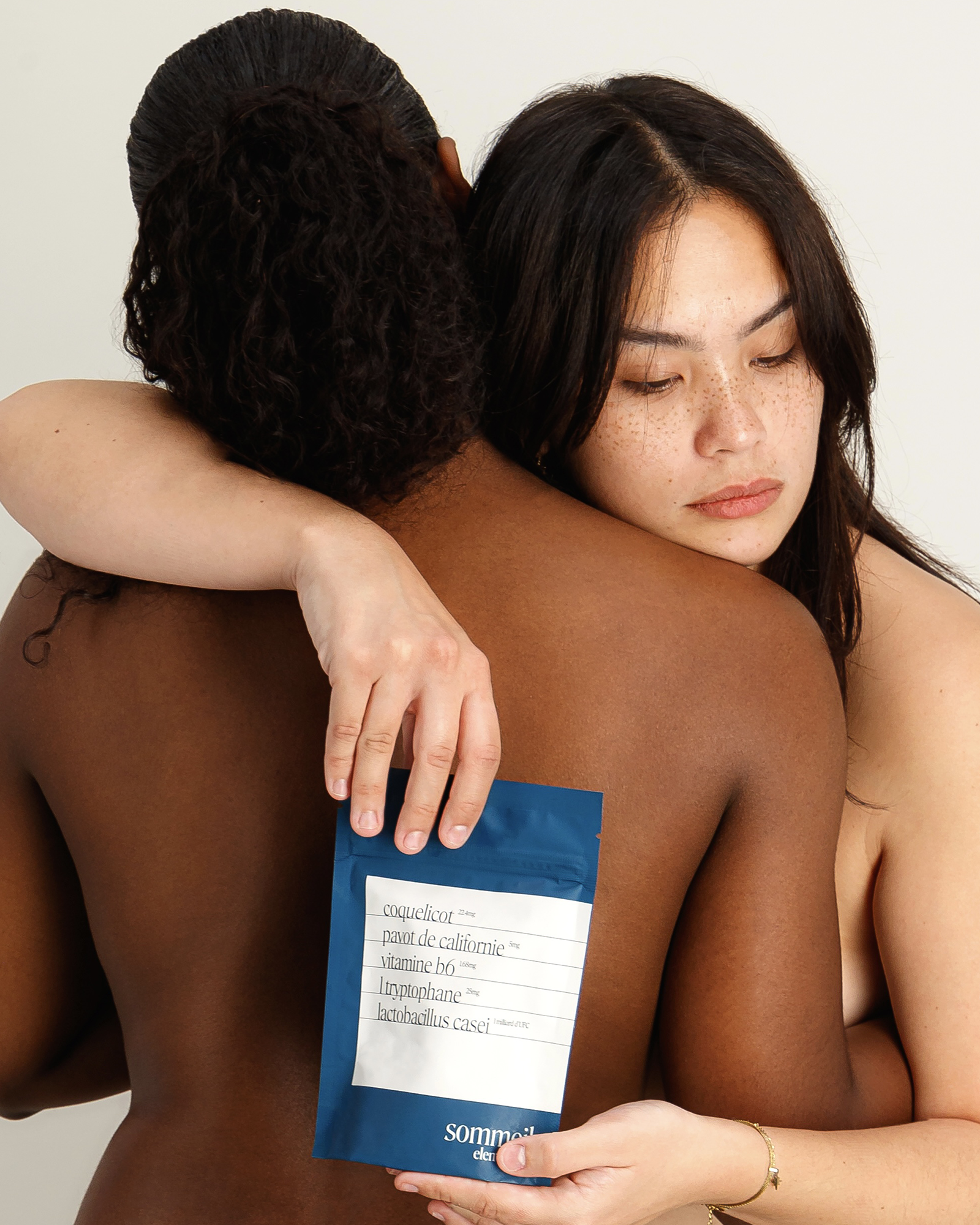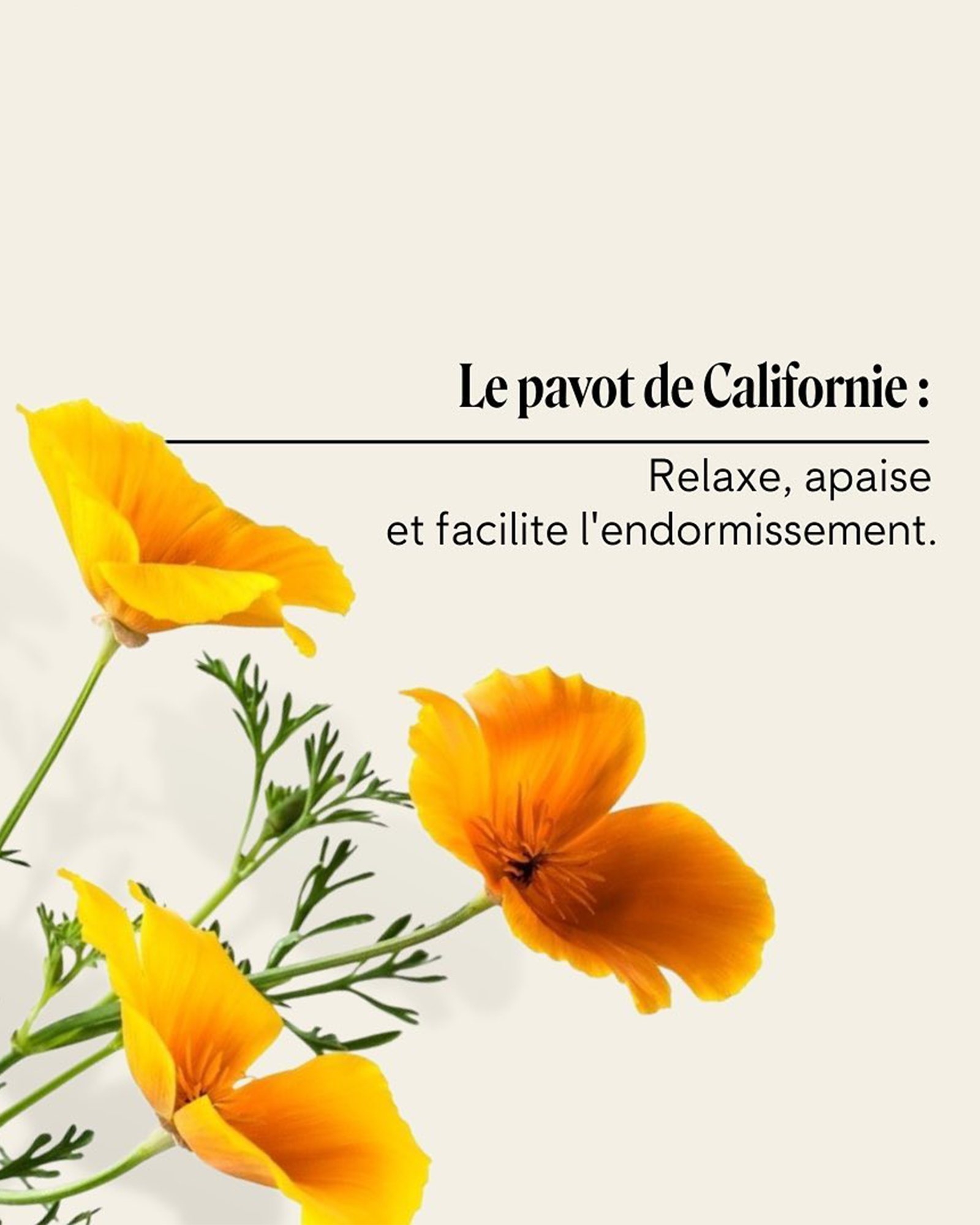At elementary., we have developed a solution to help you sleep by making the most of your body's natural abilities: elementary.sleep.
Sleep, a rich and complex subject:
A vital function, sleep holds a key role in daytime state and well-being. We spend a third of our life sleeping. For the youngest among us, it is necessary to sleep between 11 am and 2 pm. Children, meanwhile, need 10 to 13 hours of sleep compared to 8 to 10 hours for adolescents. 7 to 9 hours is sufficient for adulthood. Finally, seniors need 7 to 8 hours.
A night is made up of 4 to 6 sleep cycles, lasting about 90 minutes each. There are 3 types of phases:
- Slow slow-wave sleep: it is the transition between wakefulness and sleep. It can be "easy", when one falls asleep quickly or rather "difficult" when a noise or a thought can be distracting. It is then possible to "back and forth" between the states of wakefulness and sleep.
- Deep slow sleep: this is when the body and the brain are at rest. Brain activity and muscle tone decrease. The body actually recharges. The synthesis of growth hormone: somatotropin takes place at this time. It is important for memory retrieval and consolidation.
- REM sleep is when the body is at rest but the brain is awake. REM sleep occurs between cycles and precedes waking. Dreams often take place during this phase. By the way, did you know that 12% of the population dreams exclusively in black and white?
Sleep is a key moment of the day since it will mark the end of this one and the beginning of the next. It performs many roles:
- Maintaining Vigilance
- Production d’hormones
- Replenishment of energy stocks
- Blood sugar regulation
- Toxin elimination
- Stimulation of immune defenses
- Regulation of mood and stress activation
- Memorization learning mechanisms
Why elementary. offers an effective solution:
The elementary.sommeil solution, like all our cures, is Vegan, natural and made in France. Developed by micro-nutrition experts, the cure soothes the mind and improves sleep. It is a formula rich in active ingredients with relaxing and calming properties. Sleep quality is improved, anxiety is reduced and you feel more relaxed, ready to handle the stresses of everyday life.
Made from natural ingredients, elementary. chooses, for its solution, premium active ingredients favoring irreproachable quality:
- The poppy: With relaxing properties, the poppy makes it easier to fall asleep and promotes good sleep. Its calming virtues make it possible to fight in a natural way against various sleep disorders and against anxiety.
- California poppy: helps manage the stress of active life by contributing to optimal relaxation. Thanks to its soothing properties, it makes it easier to fall asleep and improves the quality of sleep by reducing nocturnal awakenings and insomnia.
- Vitamin B6 and L-Tryptophan: Vitamin B6 and L-Tryptophan, involved in the formation of serotonin and melatonin, promote rapid and serene sleep.
- The lactobacillus casei : A living micro-organism, lactobacillus reuteri allows the in-depth assimilation of the active ingredients of the food supplement.
elementary.sommeil has proven its effectiveness on sleep disorders, such as insomniacs for example. In France alone, it is considered that there are more than 12 million insomniacs.
We have chosen to ban melatonin:
Melatonin is the "sleep hormone". It is secreted in the brain, when the pineal gland is stimulated by darkness. The secretion of this hormone regulates our sleep schedules, cycles and phases by synchronizing them. Its levels are also influenced by diet. Some foods contain tryptophan, an amino acid that helps produce melatonin. Examples are eggs, dairy products, legumes, nuts or fruit. Some use melatonin in dietary supplements for its effects on sleep onset and adaptation to jet lag.
Nevertheless, 16% of the population is intolerant to it, so it can be a danger for some of us. For example, it is still banned in Germany. That's why elementary. has chosen to favor natural ingredients.
And if we shared some tips to accompany you:
We are far from knowing everything about sleep. For example, the lunar cycles are known to influence us in a certain way: less melatonin is secreted and sleep time at night is reduced. Or, your usual sleeping position reflects your personality: for example, a quiet and reserved person will tend to sleep on their back. Sleep is certainly a mystery, but we know that it is essential. It is important to preserve it as much as possible. We have concocted a list of tips & tricks to accompany your elementary.sleep cure.
1/ Regular hours
It is essential to have a "sleep routine" so that the body is accustomed to the times of going to bed and waking up. Start first with the hour of getting up, establish a schedule as regular as possible so that your internal clock gets used to the rhythm of your daily life. Listening to your body is one of the keys to sleep, go to bed when you feel the need. This bedtime will regulate itself afterwards.
2/ Exposure to light under control
The biological clock responds greatly to light: melatonin runs away from it. We therefore recommend regularity in the hours of exposure to light. Expose yourself to maximum sunlight during the day, the body secretes in response endorphins that keep you awake and vitamin D. Conversely, sleep in the dark to help your body find its bearings. When you wake up, choose indirect lights over the ceiling to gently wake up your body.
Blue light has, as you probably know, also a negative influence on our sleep. Produced by our telephone, computer or television screens, it largely slows down the arrival of melatonin. We therefore recommend that you turn off your screens at least 1 hour before going to bed, and why not give preference to a book?
3/ Avoid looking at the time
When we wake up in the middle of the night, we often tend to take a look at our watch, laptop, computer or clock to find out what time it is. In fact, it has been scientifically proven that this action alters our sleep. The brain, unconsciously, will calculate the number of hours left to sleep. This will produce an effect of stress and anxiety and therefore impact sleep. Avoid worrying about how much time you have left, and enjoy the rest of your night instead. Trust your alarm clock.
4/ Just one bedroom
The atmosphere of the bedroom is directly related to the quality of sleep. Indeed, the brain must assimilate the bedroom to the place of rest, love and relaxation. It is therefore recommended to create a calm, dark, temperate and ventilated atmosphere. If possible, we advise you to set up your bedroom as a resting space, where you and your brain can go to sleep. Working in your bedroom can confuse the unconscious and therefore disturb sleep.
5/ Balanced physical activity
Having a physical activity during the day is strongly recommended. Being able to exert yourself allows the secretion of dopamine, also known as the "happiness hormone" and therefore energy for the day. However, we do not recommend physical activity in the evening, which could give you energy, boost your brain and therefore prevent you from sleeping.
6/ A healthy diet
We all know that a healthy diet has many positive effects on our body and our daily life. Sleep depends on it too. It is important to find a balance to promote sleep. Too heavy meals can lead to a high demand for energy in the digestive system. Light meals can lead to the secretion of stimulating hormones due to hunger. If the diet is too little varied or too rich, this can cause sleep apnea or conversely cramps. It is therefore important to vary your diet, stay well hydrated and avoid stimulants (caffeine, carbonated drinks, etc.). many, including for sleep. Although they help us fall asleep, the quality of sleep is drastically impacted by the presence of these substances. Recovery is then greatly reduced. Finally, food goes hand in hand with sleep. For example, those who sleep less eat more. On average, sleep-deprived adults consume 300 calories more than others.
7/ Conscious breathing
Breathing is one of the most effective methods to find sleep, it allows you to empty your mind before joining Morpheus. There are many techniques, we have chosen one of the most effective. Andrew Weil developed the 4-7-8 method, taken from Yoga. She is very simple. Before going to sleep, you have to stand up, with your back straight, sticking your tongue to your palate. You start by exhaling all of the air in your lungs. Then, 3 simple steps: you inhale slowly while counting to 4, you hold your breath by counting to 7 and you end up exhaling very slowly, in 8 seconds. This exercise is repeated 3 times in a row. The mind is empty, the body calm and all you have to do is let yourself join Morpheus.
8/ Meditate
Meditation is a form of breathing exercise. It is very popular at the moment for its many benefits, especially on sleep. It allows you to work on your mindfulness, your presence in the present moment. In other words ; don't think about yesterday or tomorrow, just now.
The key is to let your mind wander without restricting it, focusing on your body and its sensations. It has many benefits for the body: lower blood pressure, improved metabolism, improved memory, reduced risk of depression... The secret of this practice is to devote time to it daily, over the long term. There are, again, many techniques, but we will focus on mindfulness meditation. We simply have to devote a moment to ourselves in the quiet, without a phone. Just start by sitting down with your back and chin straight, as if held by a string. You put your feet on the ground or cross your legs cross-legged, close your eyes and put your hands on your thighs. Then, just take deep breaths and then exhale slowly, and focus on the comings and goings of the breath as well as the sensations in the body that accompany it. We recommend a daily practice of 5 to 20 minutes. The Petit Bambou program is also a very effective approach, since you are accompanied by a meditation expert during various programs.
9/ Ancestral self-care through touch
For centuries, Indian medicine and Chinese medicine have treated ailments in a totally different way than today. They favor self-care thanks to plants, physical and/or psychic exercises or even thanks to touch. This is particularly the case for sleep problems.
Chinese medicine is at the origin of acupuncture, an alternative medicine that intervenes on the twelve energy pathways. In Chinese medicine, the body is considered to be traversed by twelve energy pathways called meridians. A person is healthy when the energy of his meridians can flow freely and efficiently. Acupuncture uses needles that are placed on a particular point of these meridians to treat this or that ailment. Needles are not always mandatory, you can use your fingers. To cure sleep disorders, acupuncture advises pressing on the “door of serenity” also called the “seventh meridian of the heart”. This point is located on the left wrist. So just apply clockwise circular pressure to that spot for 3 minutes. Simple !
In Indian medicine, commonly called "Ayurveda", the individual is seen as an integral part of the universe whose balance depends on man, nature and lifestyle. Each individual has a doshic constitution, linked to the 5 elements. There are 3: Vata, Pitta and Kapha. The day is divided into 6 cycles, two of which correspond to a dosha; each type has its energy boosted by a time of day. Whatever this dosha, the ideal period related to sleep is before 10 p.m. It is therefore advised in this medicine not to exceed this bedtime for a good night. It is also advisable to massage your feet with warm sesame or olive oil before wiping with a cool cloth. This will have a calming effect on the sleep center of the brain.






